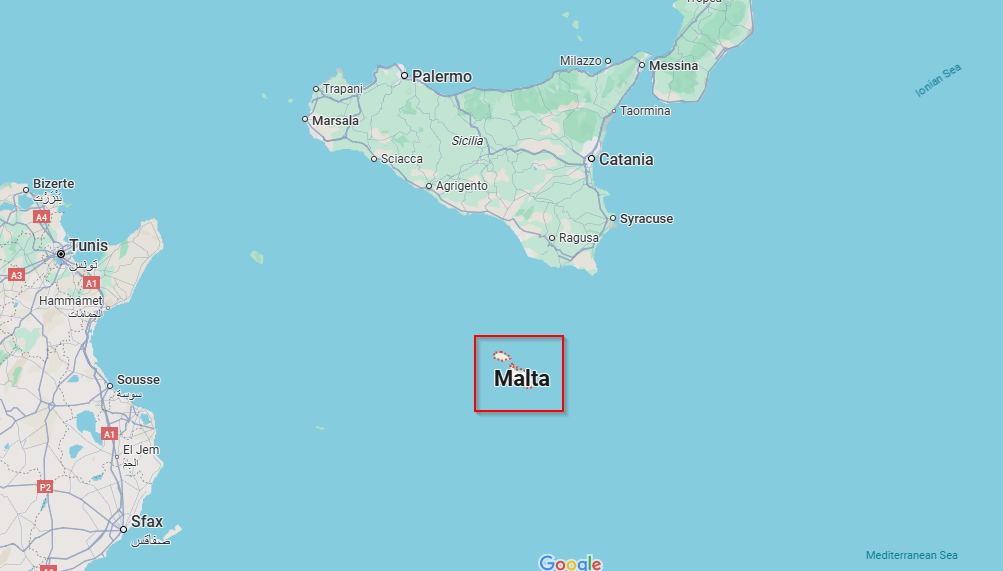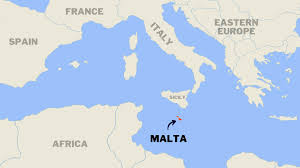1 Why Malta? Main Features for Businesses
Malta is one of Europe’s most tax-efficient, English-speaking jurisdictions, combining a headline 35% corporate rate with an unparalleled refund system that can drive the effective burden to 5%. Key attractions:
- Strategic mid-Mediterranean location – EU and Euro-zone member, yet only three hours from North Africa and the Gulf.
- Full-imputation and refund regime – shareholders recover up to 6⁄7 of the tax a Maltese company pays, producing 5% trading-profit ETR or 10% on passive income.
- Robust participation exemption – 0% on qualifying dividends and capital gains; no withholding tax on outbound dividends, interest or royalties (except to black-listed jurisdictions).
- World-class financial & professional services sector – MFSA-regulated banks, fund administrators, insurers, MGA-regulated gaming companies, and the MDIA/FIAU blockchain framework (“Blockchain Island”).
- EU passport + treaty network (65+ DTAs) – Ideal for holding, IP-licensing, fintech, gaming, captive-insurance, maritime and aircraft structures.
- Skilled, multilingual workforce – English an official language, labour costs ±65% of Western-EU average.

Typical beneficiaries: international trading hubs, intellectual-property owners, SaaS and blockchain ventures, ships/aircraft operators, regional head-office, pension and investment fund platforms.

2 Core Legal Forms of Company
| Form | Minimum Capital | Founders | Key Points & Reminders |
|---|---|---|---|
| Private Limited Company (Ltd) | €1 (customary €1 165; 20% paid) | 1–50 | 99% of incorporations; one director + company secretary (natural person). |
| Public Limited Company (plc) | €46 587 (25% paid) | 2 + | May list shares; two directors; full IFRS reporting. |
| Protected Cell Company (PCC) | €6,000–€48,000 | as plc/ltd | Segregated cells for captive insurance & securitisation. |
| Branch of foreign entity | — | Parent | Not separate; parent liable; fast to register. |
Key points to remember
- 100% foreign ownership permissible.
- Directors need not be Malta-resident, but at least one local director/ authorised signatory is recommended for management-and-control substance.
- Remote incorporation possible with power-of-attorney and video-notary; registered office in Malta mandatory.
- Annual government fee: €100–€1,400 (share-capital-linked).
3 Taxation System & Optimisation Levers
3.1 Corporate Income Tax
| Item | Rule / Rate (2025) | Planning Example |
|---|---|---|
| Headline CIT | 35% on worldwide profits of Malta-resident companies | TradingCo earns €1,000,000 profit → pays €350,000 CIT. |
| Shareholder refund | 6⁄7 (trading profits) ⇒ 5% ETR; 5⁄7 (passive); 2⁄3 (if DTR claimed) | Non-resident shareholder receives €300 000 refund → net Maltese tax €50 000 (5%). |
| Participation exemption | 100% on dividends/gains from a 5%+ equity holding meeting “subject-to-tax” or 1 of 6 alternative tests | HoldCo sells 10% stake in EU sub for €4 m gain → 0% Malta tax. |
| Notional Interest Deduction (NID) | Deductible deemed interest on risk capital (reference return ≈ 8%) | Equity increase €2 m → NID €160 000 → saves €56 000 tax before refunds. |
| IP Box | 95% deduction on qualifying IP income ⇒ 5% ETR | RoyaltyCo earns €1 m → taxable €50,000 → €17,500 CIT; after 6⁄7 refund = 1.25% effective. |
| Fiscal-unity (“consolidated group”) | One-tier group reporting; intra-group profits neutral; optional year-to-year | OpCo & HoldCo opt in; refund becomes an inter-company credit, improving cash-flow. |
3.2 Other Key Taxes
| Tax | 2025 Rate / Threshold | Notebook |
|---|---|---|
| WATT | 18% standard; 7%/12%/5% reduced | Mandatory registration ≥ €35 000 turnover; distance-sales OSS €10 000. |
| Social Security | Employer 10% + maternity 0.3%; Employee 10% | Based on weekly bands (€221.78+/week). |
| Stamp Duty | 2% – 5% on Maltese immovable property & certain share transfers | Share-for-share reconstruction relief available. |
| WHT | 0% dividends/interest/royalties (unless paid to black-listed jurisdictions) | Treaty relief ≥ 65 countries. |
| Property tax / wealth tax | None | Competitive versus EU peers. |
4 Ease of Doing Business & Government Policies
- World Bank “Business Ready” score 75 / 100 (2024) – strong on cross-border trade, investor protection.
- Digital State – online tax filing, VAT e-services, e-identity for directors.
- Sector leniency
- Supportive: iGaming (MGA license), fintech/crypto (MFSA/MDIA sandbox), aviation & maritime leasing, film production, life-sciences.
- Restrictive: Traditional banking (high capital, ECB oversight), construction & real estate (new AML rules), insurance undertakings (Solvency II).
- Substance rules – post-ATAD, companies claiming refund/IP box must evidence Maltese management, premises, and proportionate staff.
- OECD Pillar 2 – Global minimum tax (15%) applies to €750 m+ groups; Malta implements QDMTT from 2025, neutralising refund benefit for those groups.
5 Company Formation: Process & Cost
| Step by step | Abraham Lincoln | Out-of-Pocket (€) |
|---|---|---|
| Name reservation (online) | Same day | 10 |
| Draft & notarise M&A | 1 – 2 days | 300 – 500 |
| Bank a/c & capital deposit* | 1 day | — |
| Registry filing (ROC) | 2 – 3 days | 245 (e-filing) |
| Tax/VAT, PE number | Automatic | — |
*Share capital may remain in situ until business banking finalised.
Typical turnkey package (registered office, nominee officer, compliance setup): €1 000 – €3 000 first year.
Shareholding & residency
- 100% foreign shareholders allowed.
- Non-EU owners often appoint a local corporate director/secretary for substance & bank onboarding.
- Nominee shareholders permissible (subject to full AML/KYC disclosure to MFSA & ROC).
6 Grants, Incentives & Funding
| Measure | Benefit | Target Activities |
|---|---|---|
| Investment Aid Tax Credit | Up to 50% of CAPEX or wage cost (doubled to €1 m for innovative SMEs) | Manufacturing, digital & R&D projects. |
| Start-Up Finance Scheme | Cash grants/loans €10 k – €500 k (capped €1 m for deep-tech) | Early-stage, IP-rich ventures. |
| R&D Tax Credits | 35% (incremental) or 15% (volume-based) refundable credit | Applied research, prototypes. |
| Film & TV Cash Rebate | 40% of eligible spend | Productions shooting in Malta. |
| Employment & Training | Wage subsidy €5 200 per new graduate hire; upskilling vouchers €2 000/employee | Digital & green skills. |
EU co-funding via Malta Enterprise, JobsPlus, and EIT Digital complements national schemes.
7 Governance & Compliance
| Obligation | Threshold | Deadline |
|---|---|---|
| Audited IFRS/GAAP financials | All Ltd/plc (except micro-entities) | 10 mths after y/e. |
| Annual return & licence fee | All companies | Anniversary date. |
| CIT return (Form TA2) | All companies | 9 mths after y/e; tax payable in three instalments. |
| VAT return & EC sales list | Monthly/quarterly (turnover-linked) | 20 days after period-end. |
| ESG / CSRD report | Large PIEs 2025; large companies 2026; SMEs 2027 | With financials. |
| UBO Register update | Any change | 14 days. |
| AML screening & MFSA compliance | Subject persons | Ongoing (incl. VFA/crypto, gaming, CSPs). |
Penalties: €500-€5 000 per late return; up to €50 000 for AML breaches; tax-refund claims blocked until compliance cleared.
8 Conclusion
Malta’s two-tier model—statutory 35% CIT combined with shareholder refunds and full participation exemption—delivers headline-beating effective rates (5% trading, 10% passive, ~1% IP) while retaining full EU credibility. Add minimal share-capital rules, fast e-incorporation, English-speaking talent, and sector-specific rigs for gaming, fintech and maritime, and Malta positions itself as Europe’s boutique hub for high-value, mobile capital.
Key takeaways for prospective investors:
- Pick the Ltd structure; build substance (local director, office, minimal payroll) to safeguard refund.
- Use Malta’s refund, NID and IP box stack to reach single-digit ETRs; deploy fiscal-unity for cash-flow smoothing.
- Leverage Investment Aid credits and Start-Up finance to offset CAPEX or wage burn.
- Prepare for OECD Pillar 2 if turnover > €750 m—QDMTT neutralises refund, but Malta still offers EU-level 15% ceiling.
- Maintain strict AML, ESG and UBO compliance to avoid refund delays and preserve bank access.
With careful structuring and robust governance, Malta remains a premier jurisdiction for globally oriented enterprises seeking a tax-efficient, regulation-friendly EU base.

